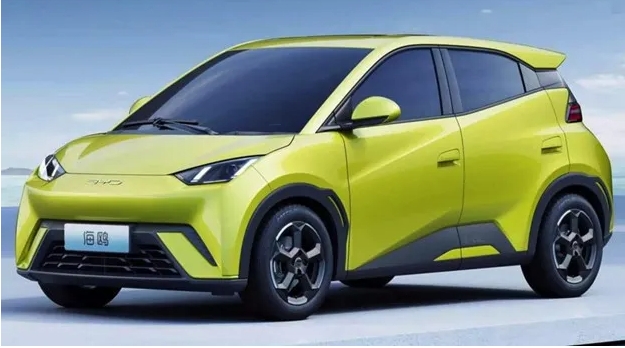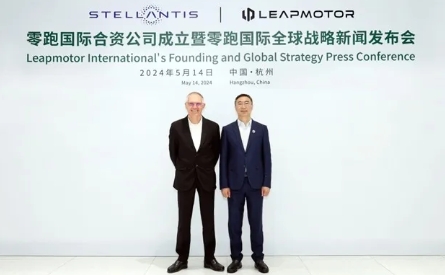Partner or Protect? U.S. & EU Respond to Chinese EVs
Partner or Protect? U.S. & EU Respond to Chinese EVs
The electric vehicle (EV) market is dramatically transforming, with Chinese manufacturers emerging as a powerful force. This shift is particularly evident in Europe, where established automakers are creating partnerships with Chinese EV producers while the U.S. takes a protectionist stance with new tariffs.
The electronics industry has a significant stake in the race toward EV dominance. The high electronics content in these vehicles represent a boon for chipmakers and other component and technology providers. Traction inverters alone will represent a $45 billion market by 2025. But the nations competing in EVs also want high levels of domestic electronics in these cars. China has set its sights on the global semiconductor and battery sectors and remains the low-cost leader.
Chinese companies such as BYD and Leapmotor bring a competitive edge to the market. BYD recently introduced the Seagull, a compact electric car priced under $10,000 in China, significantly lower than most EVs available elsewhere.

Chinese EV manufacturer Leapmotor has partnered with Stellantis, a European giant that encompasses brands like Peugeot, Fiat, and Alfa Romeo. This collaboration allows Leapmotor to leverage Stellantis’ extensive dealership network and production facilities across Europe, accelerating their European entry.
European automakers, facing the prospect of losing market share to Chinese competitors, are adopting a pragmatic approach. Stellantis’ partnership with Leapmotor exemplifies this shift. By offering competitively priced Chinese-made EVs through their dealerships, Stellantis aims to capture a segment of the market they might otherwise lose. This strategy reflects a growing recognition that European companies must adapt to compete effectively with Chinese rivals.
Chinese EV manufacturer Leapmotor has partnered with Stellantis, a European giant that encompasses brands like Peugeot, Fiat, and Alfa Romeo. This collaboration allows Leapmotor to leverage Stellantis’ extensive dealership network and production facilities across Europe, accelerating their European entry.
European automakers, facing the prospect of losing market share to Chinese competitors, are adopting a pragmatic approach. Stellantis’ partnership with Leapmotor exemplifies this shift. By offering competitively priced Chinese-made EVs through their dealerships, Stellantis aims to capture a segment of the market they might otherwise lose. This strategy reflects a growing recognition that European companies must adapt to compete effectively with Chinese rivals.
He added that “access to European production plants at underutilized Stellantis facilities would also allow Leapmotor to navigate any potential changes to import tariffs in Europe.”
The U.S. responds with massive tariffs
In contrast to Europe’s collaborative approach, the U.S. has opted for protectionism. The Biden administration recently imposed a 100 percent tariff on Chinese-made electric vehicles to shield American manufacturers from competition. While this move might benefit domestic companies in the short term, it could hinder long-term innovation and consumer choice.
The Biden administration’s decision does not directly address a situation in which a Chinese electric vehicle manufacturer establishes a plant in Mexico and attempts to export cars to U.S. customers. In theory, these cars could benefit from low tariffs. Yet, Washington would likely block any Chinese-branded EVs from entering U.S. showrooms.
The effectiveness of the U.S. tariffs remains to be determined. Analysts estimate that only tariffs exceeding 50 percent would significantly impact Chinese automakers’ European expansion plans. Additionally, the high profitability of Chinese EVs in Europe could offset the tariff burden. Furthermore, such high tariffs could further strain U.S.-China trade relations and lead to retaliatory measures.

U.S. carmakers will enjoy protection against low-cost Chinese competition thanks to new tariffs. The flip side: “U.S. consumers will not have access to the world’s highest-quality and least-expensive electric vehicles,” said Cory Combs, associate director at the consulting firm Trivium China.
The global EV market will likely witness a dynamic interplay between competition and collaboration. European automakers’ willingness to partner with Chinese firms reflects a pragmatic approach to a rapidly evolving market. While potentially protecting domestic companies in the short term, the U.S. tariffs could decrease innovation and consumer choice in the long run. Ultimately, the success of any company in this evolving market will depend on its ability to offer competitive pricing, innovative technology, and a strong brand reputation.

